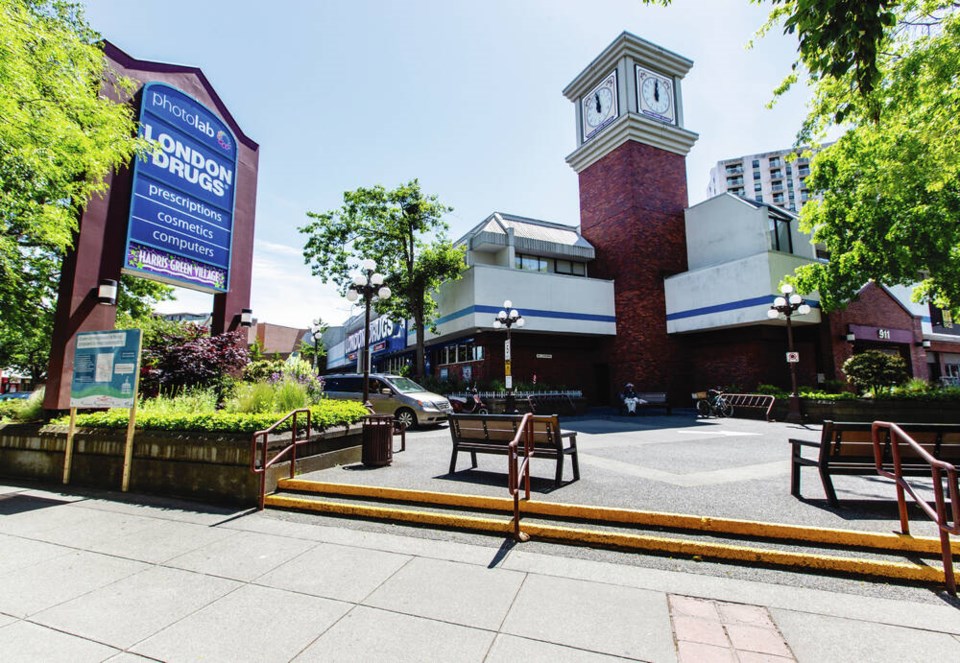There’s a new $5-million pool of provincial money being made available to B.C. police for use in fighting non-violent crime like shoplifting.
In the catalogue of crimes that dominate the ongoing public safety debate, shoplifting is one of the less dramatic.
(The Opposition opened a question period in the legislature this week by asking about “tourists being beaten black and blue,” a man who was decapitated, another whose hand was cut off by a machete and a mother punched in the face while holding a baby, among other atrocities.)
But police and an official from one retailer — London Drugs — stressed that shoplifting is having severe consequences in B.C. communities.
Police leaders at the announcement of the community safety and targeted enforcement program (CSTEP) said shoplifting and general public disorder are eroding the sense of safety and impacting local economies.
RCMP Supt. Wendy Mehat, president of the B.C. Association of Chiefs of Police, said police are doing all they can “but we recognize that enforcement alone cannot solve the problem.”
She said the additional money will help cut chronic street disorder particularly related to repeat offenders.
Outreach, targeted enforcement and partnerships will be some of the means used.
Minister of State for Community Safety Terry Yung said the government has heard loud and clear from community leaders that theft and robberies are sometimes making their operations untenable.
Many retailers have vastly increased their own security teams in recent years and Mehat said police capacity will be increased through co-ordinated operational plans with “business outreach teams” and social services.
London Drugs loss prevention officer Tony Hunt went further than the politicians did in acknowledging how bad the lower-level crime is getting. He said escalating crime and violence is damaging property and making families fear for their safety.
Retail clerks, the backbone of the labour force, are facing organized aggressive retail crime, he said. Businesses are spending more than ever on security, and the worsening problem is threatening communities.
London Drugs, where employees a few years ago were authorized to wear “stab vests” because of the danger, has been the most outspoken business in drawing attention to the problem. It was one of the first to join the Save our Streets coalition to press governments to do a better job.
The new source of funding opened quietly a few weeks ago. As outlined at the news conference, police agencies can apply and use it to fund an increased presence on city streets and more intervention of various sorts in shoplifting cases, some of which involved drug-addicted people being managed by organized gangs.
The program looks to be an attempt to broaden localized efforts like Project Lifter in Victoria, a shoplifting crackdown that has resulted in dozens of arrests.
Hunt told City News last week that a similar $5-million program in Vancouver is working well, with drops in theft and violence at the company’s crime-prone Downtown Eastside location. A few months ago, the company was considering closing the store because it was losing millions due to rampant crime.
Save Our Streets has warned against one-off fixes to specific parts of the overall crime issue. Violence and street disorder stem from mental health and addiction, and are compounded by lack of resources and the established catch and release bail system, where arrestees are rarely detained for any length of time.
Officials stressed they are looking for innovative ideas from police applying for the funds.
Mehat’s reference to partnerships with businesses and social services suggests police may be working closer with store security in catching thieves and with social workers on what to do once they are apprehended. She envisioned more downtown foot patrols, concentrated operational plans on theft or drug trafficking, and security education programs.
Whether this latest acronym is just another one-off or part of proactive, integrated crime-fighting approach is open to interpretation.
But any progress on the overall problem depends on federal bail reform, which is still a hot topic in Ottawa two years after the former government tried to toughen up the system to curb catch and release.



